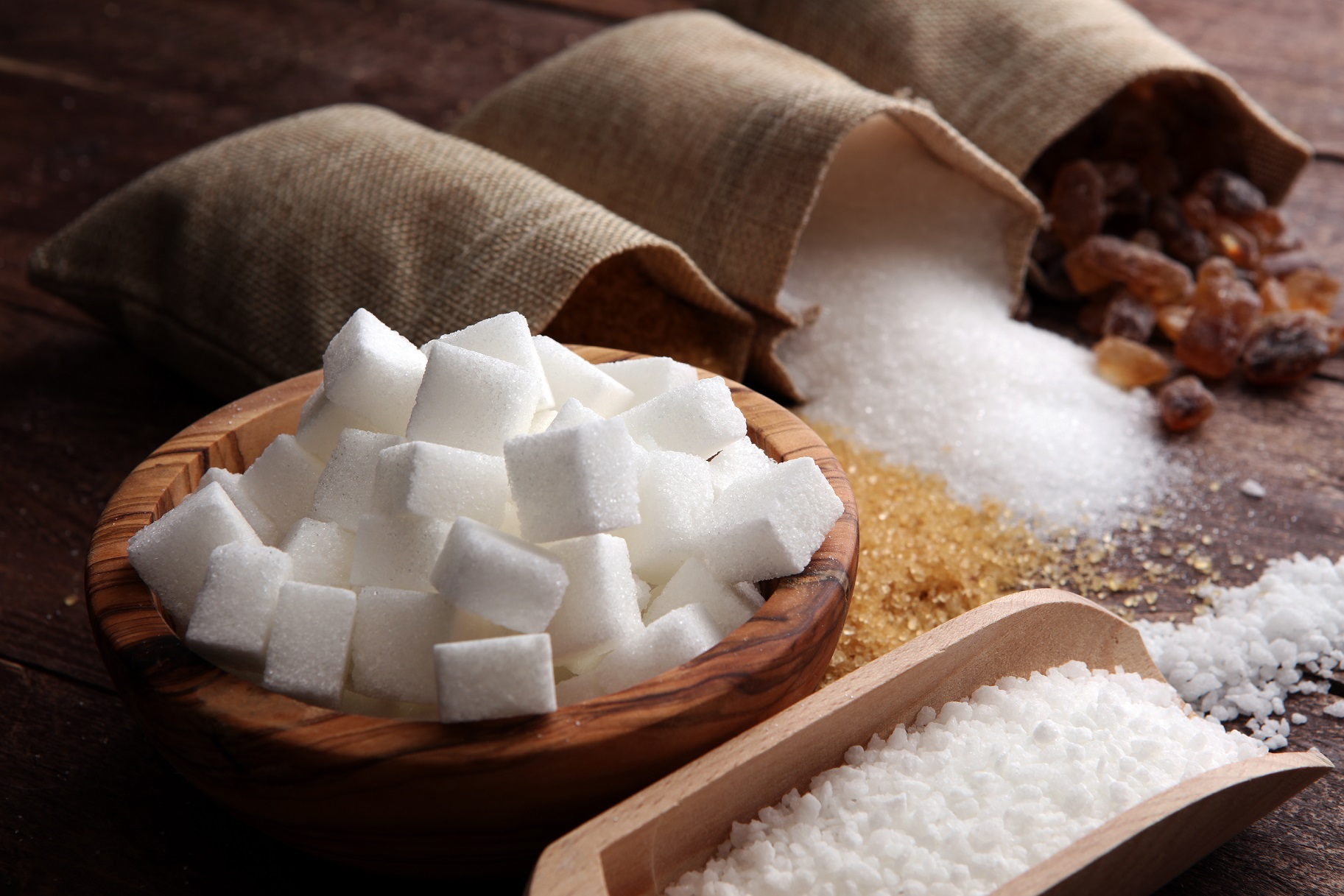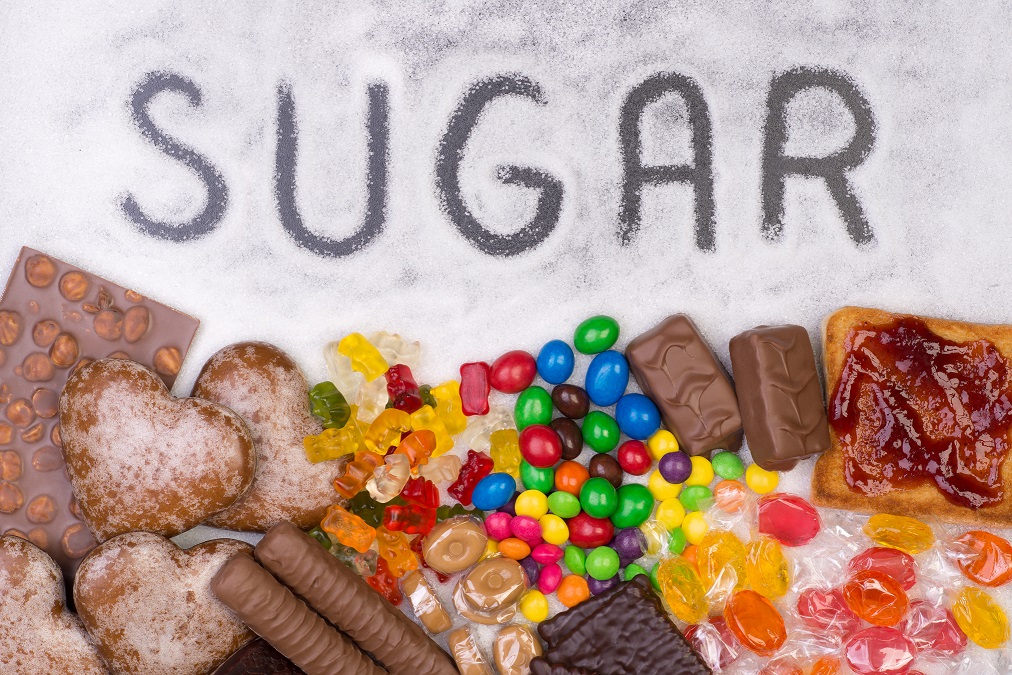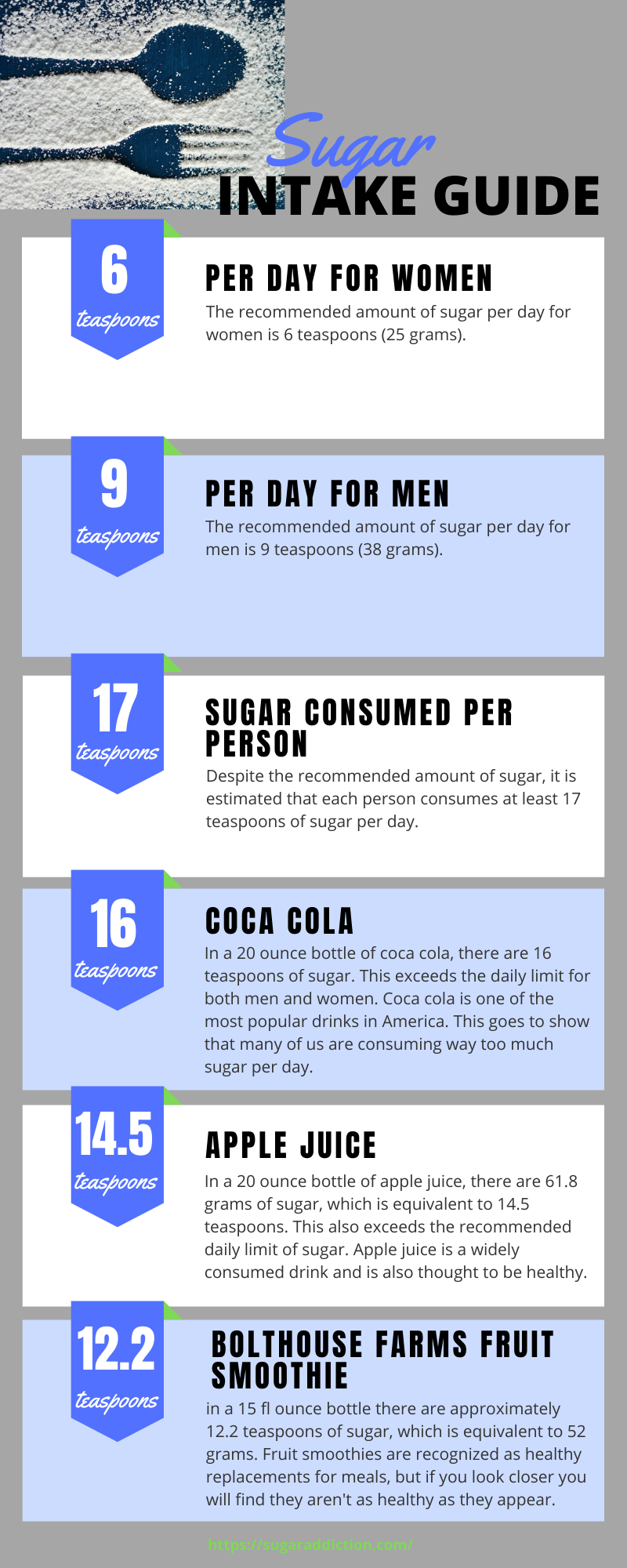
We are a nation afflicted with sugar addiction in America. According to studies done by the Department of Health and Human Services, the average American eats 42.5 teaspoons of sugar every day. This equals out to 170 grams of sugar or roughly 1/3 of a pound of sugar per day. Most nutritionists suggest that about 10% of your caloric intake should be from sugar. This is based on an average of 2,000 calories per day and comes out to around 53.2 grams per day.
As you can see, the average intake is well above what is suggested. This is because as a nation, we love our sugar! We just can’t seem to get enough of it, from coffee in the morning to dessert at night. Many individual’s days begin and end with some form of sugar. Asking many to quit sugar can seem like a tall order.
Diabetes In America
- 30 million Americans have diabetes
- That’s 1 in every 10 individuals
- Of those 30 million, 90 to 95% have type 2 diabetes
- Type 2 diabetes can get worse due to obesity
However, there is another problem that is not often spoken about in a serious manner when it comes to sugar. Sugar possesses addictive qualities and this addiction can affect individuals greatly. Since a majority of individuals will not necessarily ruin their life (in terms of getting arrested or ruining interpersonal relationships) because of their sugar addiction it is often hard to grasp how detrimental sugar addiction withdrawals can be. But when you take into account that an estimated 3.16 million people die every as a result of high blood sugar, it becomes apparent that addiction to sugar boards on a major worldwide health concern.
What is Sugar Addiction?
For starters, we should distinguish between sugar addiction and caffeine addiction. Most people are well aware of their caffeine addiction. After all, they know that if they don’t have their coffee in the morning, they experience tremendous, debilitating migraines. These migraines are the body’s way of telling you that something is missing and are the direct result of withdrawal symptoms from not having caffeine. However, when it comes to sugar addiction, most individuals are not truly aware that they are addicted.
When was the last time you went a day without sugar? Most likely, you have never even thought about that until the question was just posed to you. It is apparent that sugar has slowly and quietly become America’s leading addiction. So much so that a majority of the foods that we eat contain sugar in one form or another and most of us aren’t even aware of it.
With all of that said, what exactly is sugar addiction and how do you know if you are addicted to sugar?
Like any other addictive substance, sugar affects the pathways in the brain, which in time cause dependence and addiction. In fact, studies have shown that sugar actually activates opiate receptors. In addition, it also affects the reward center in the brain. This, in turn, can produce compulsive and addictive behaviors similar to that of traditional drug or alcohol abuse.
Individuals who suffer from a sugar addiction will find themselves compelled to eat sugary foods or drinks even if they do not want to, are full, or are attempting to eat healthier. If you want to stop eating sugar, it is not simply a matter of an individual enjoying the sweet taste of these foods. Instead, it stems from an addiction, the brain, and the body’s cravings for sugar.
Signs of a Sugar Addiction
The signs of sugar addiction are in some regards more glaring than that of other addictions. However, since there is such an overwhelming social acceptance for sugar addiction the signs usually go unnoticed. When coming to terms with an addiction it is always important to point out that self-diagnosis, or acceptance of the addiction is the first step towards overcoming it. You also need to be prepared for your body to go through a sugar detox.
Below are some of the most common signs of sugar addiction. You could be addicted to sugar if you relate to any of the following. Consequently, you may want to reach out to us for help.
- You attempt to hide your sugar intake from others
- You crave or have a preoccupation with sugar when you are not eating it
- When you do not have sugar, you experience withdrawal symptoms
- You eat sugar even if you are not hungry
- You feel guilty about the amount of sugar that you eat
- When you are stressed out you use sugar in order to self-soothe
- Your sugar intake has increased, and you need more and more to feel satiated
Sugar Addiction Withdrawal Symptoms
With any addictive substance, when an individual attempts to stop they will experience sugar withdrawal symptoms. These symptoms are directly proportional to the length of time that the individual used the substance and how much of the substance they used. This is the same for withdrawal from sugar and some of the symptoms can be surprisingly strong.
The withdrawal symptoms from sugar usually begin around 24 to 48 hours after you last ingested sugar. They last anywhere from a few days to a week. The withdrawal timeline depends on how much sugar you are eating or drinking and how long you have been addicted to sugar.

The most common withdrawal symptoms from sugar addiction are split up into two categories: psychological symptoms and physical symptoms. While the physical symptoms of sugar addiction are in general more uncomfortable than the psychological symptoms, the psychological symptoms should not be underestimated. We recommend taking a look at our carefully crafted sugar detox plan if you truly want to quit sugar.
Most individuals who are unable to stop eating sugar are unable to do so because of the psychological symptoms that are produced by sugar withdrawal, or the pronouncement of any underlying mental health concerns that they may have been self-medicating with the use of sugar.
Psychological Withdrawal Symptoms
- Anxiety
- Depression
- Insomnia
- Cravings for sugar
- Difficulty focusing
Physical Withdrawal Symptoms
- Headaches
- Dizziness
- Muscle aches or pains
- Weight loss
- Nausea
Sugar Addiction and Mental Health Issues
Sugar addiction is linked to anxiety and depression. Excessive intake of sugar has been shown to potentially contribute to depression, whether it is a pre-existing condition or one that is actually created by the excessive sugar itself. Part of the reason for this is because foods that are rich in sugars and carbohydrates actually interfere with the neurotransmitters that help stabilize an individual’s mood.
Depression and Sugar Addiction
When someone ingests sugar, they receive an increase in serotonin in their system. This temporarily makes them feel, for lack of a better word, happy. This false or externally driven increase of serotonin not only contributes to addiction but also affects the way that the brain naturally releases serotonin. In the long run, this can create a scenario where an individual will actually experience depression if they do not have sugar, or if they have a pre-existing issue with depression it can worsen it.

Anxiety and Addiction to Sugar
This is no different for sugar and anxiety. However, this link is becoming more widely known for quite some time. A major cause for an increase in anxiety and panic disorders is weight gain, and part of what is driving this weight gain is excessive sugar intake. Beyond this, eating too much sugar will result in an individual becoming overstimulated, which can result in heightened anxiety.
For those individuals with a history of anxiety disorders, too much sugar can result in more panic or anxiety attacks. It also results in a vicious cycle of depression and anxiety, fluctuating with the amount of sugar that they eat.
Many physicians and psychiatrists suggest that you limit or avoid foods that are high in sugar if you want to get your depression and anxiety under control (as well as seek professional help if the symptoms are persistent and prolonged). Yet limiting your sugar intake can be difficult. It takes research and help in order to figure out just how much sugar you are currently eating and how you can best wean yourself off of this pervasive and tasty substance.
Getting Help for Your Sugar Addiction
If you think that you may have an issue with sugar addiction then take our sugar addiction quiz today. Admitting you are addicted to a substance is difficult. However, in order to move on with your life and become healthier and happier, it is an important step to take. The most important thing to understand is that you are not alone in your struggles. The resources that we offer are a means to help you overcome your sugar addiction once and for all, and finally, regain control of your eating habits and your life.


